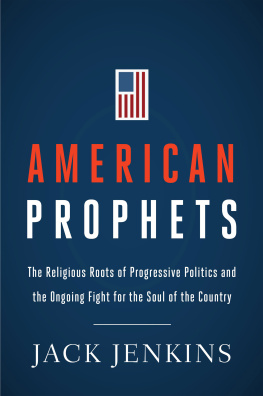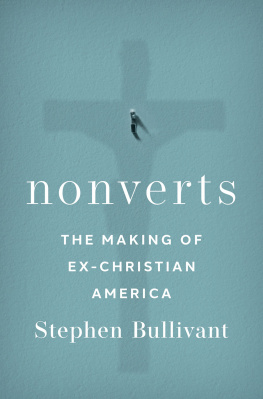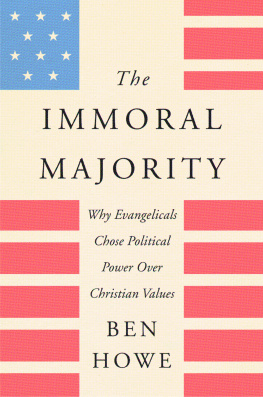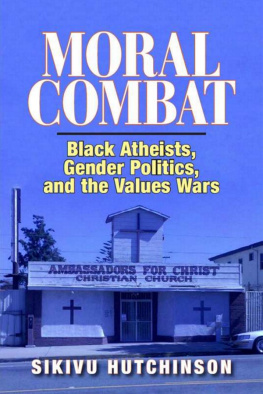I fiddled with my camera as I emerged from the Park Street T station in downtown Boston, ignoring the bluster of wind that swept across my face. I adjusted and readjusted the lens before turning the DSLR over, crossing the street as I flipped through an endless litany of settings crammed into its minuscule screen. I tinkered aimlessly while walking southeast from Boston Common toward the citys financial district, barely looking up as I sped past fellow pedestrians, clogged shopping centers, and the offices of Bank of America.
I was nervous.
My neurotic state was one well known to many reporters. It was 2011, and I was working on my first freelance assignment for Religion News Service, tasked with chasing down a religion angle in the Occupy Wall Street movement. As a native southerner, I never fully adjusted to the infamously frigid winters in Boston, where I was attending divinity school at the time. The ice and snow hadnt arrived yet, but I forgot my gloves that day, which was a problem: I was worried that any religious presence I found would be fleeting, and that I probably wouldnt be nimble enough to set up my camera in a crucial moment with my clumsy, frozen digits.
I was still anxious when I arrived at Dewey Square, home to Occupy Boston, the local branch of the rapidly expanding Occupy movement. I paused across the street from the encampment to take in the sight and catch my breath, bouncing on my toes and hugging myself to keep blood flowing. Feeling slightly warmer, I raised my camera to snap a photo of the sea of multicolored tents sprawled across a patch of green in the shadow a nearby office building. Through my viewfinder I could see a hastily constructed protest camp bustling with activity: men and women, most of whom looked to be in their twenties, meandered a tangled web of walkways that snaked through the tent city. Some of them wore shirts or gripped signs of protest that championed The 99%, a phrase I had heard chanted over and over at Occupy demonstrations across the country.
But as I lined up my shot, I didnt hear chants.
I heard hymns.
Dumbstruck, I shoved my camera back into its new case and wandered across the street and into the expanse of temporary structures, following the music until I found its source: a makeshift A-frame tent fashioned from wrinkly, weather-beaten blue tarps patched over with duct tape. Inside, a group of worshippers sat in a tight circle, belting out the last notes of an impassioned spiritual. I made moves to join them, but one looked up at me, pointed at my muddy feet, and gestured toward a list of rules scrawled in barely legible marker on a cardboard sign: Sacred Space Guidelines, it read. And below it: Rule No. 2: Remove shoes.
I stared at the sign, which appeared to have led a very active past life as a FedEx box. My mind reeled; removing shoes is a common practice in many religious communities, but usually only when entering a venerated place of worship. In some traditions, the command to do so occurs when God asks an important religious figure to approach holy ground. Even then, it is a request most often reserved for one very specific group of people: prophets.
I looked back at the group, which had already launched into the next song. I was in the presence of prophets.
Not that many of the interfaith activists in that tent would have used that phrase to describe themselves, of course. Prophet means different things in different faith traditions, and some dont have a concept of it at all. But it was one of my early introductions to what many activists call the prophetic tradition of social justice activism, a spiritual lineage that comprises a myriad of movements and an even greater number of faiths. Its a phenomenon I would later come to associate with the Religious Left, an amorphous, ever-changing group of progressive, faith-based advocates, strategists, and political operatives. I was surprised to find representatives of this movement at Occupy, but I shouldnt have beenand not just because I was tipped off that the tent existed before I got there. As I would learn over the next several years of reporting on the Religious Left for ThinkProgress and Religion News Service, these activists and others like them have been a core component of progressive social movements throughout American history, often rising to meet moral crises in times of need. Far from being a historical relic, the Religious Left I have come to know exerts growing influence on modern Democratic politicsbe it by staging massive protests, leading legislative fights, training future candidates, or pressuring political leaders. The Religious Left is the beating heart of modern progressivism; although rarely acknowledged by members of either major political party, it is one of the Lefts most secret of weapons and has the potential to impact US politics for years to come.
This book is an attempt to unearth some pieces of that secret. Such a task requires digging into the history, theology, and strategy used by Religious Left leaders to exert influence on their fellow progressives. My intention is not to tell an exhaustive history of this coalition of coalitions and its historical progenitors. (For those seeking such a history, see historian Albert J. Raboteaus similarly named American Prophets: Seven Religious Radicals and Their Struggle for Social and Political Justice). Rather, my aim is to home in on the iterations that are having the greatest impact in modern politicsand explain where they came from. The result (I hope) is the story of a movement that is fundamentally different from the similarly named Religious Right, one that makes sense only when examined through the overlapping lenses of protest, policy, and politics.
But first, a quick note about terms. I use the phrase Religious Left a lot in this book, but many people who may fall under that categoryincluding leaders I profile in these pagesactively reject the term. A running joke Ive had with editors for years is that one of the hallmarks of a Religious Left leader is vehement opposition to the phrase Religious Left. (Look: Im a journalist, not a comedian.)
Still, readers should not assumeunless otherwise notedthat people who fall into that category necessarily embrace the term. When appropriate, I do my best to list most of their objections to the epithet. Some see it as too limiting, and others dont like the association with the Religious Right, whose tactics and approach to politicized faith they hold in contempt. Still others quibble over the finer definitions of the words themselvesa political moderates left is often not the same as a democratic socialists or, for that matter, a hard-charging conservatives. Political scientists also spar over the exact borders of these ideological camps, some of which have morphed in profound ways in just the past three years.
Nevertheless, I use liberal, progressive, and left relatively interchangeably in this book when referring to those who mostly (but not always) fall in and around the Democratic Party, if for no other reason than that is how the terms are used in popular political discoursethe water in which these activists and operatives swim.
Moreover, as any number of scholars have made clear to me in classrooms and over the course of my career, the category of religion is hotly contested. Different thinkers use different criteria to classify what is or isnt a faith community, and many reject the idea that such a thing can ever be fully defined in the first place. I have my own thoughts on this matter, but I strive to rely on the terms that faith communities use to describe themselves (thus, Native American spirituality instead of religion), acknowledging that preferences can differ even among individual believers within the same tradition.






